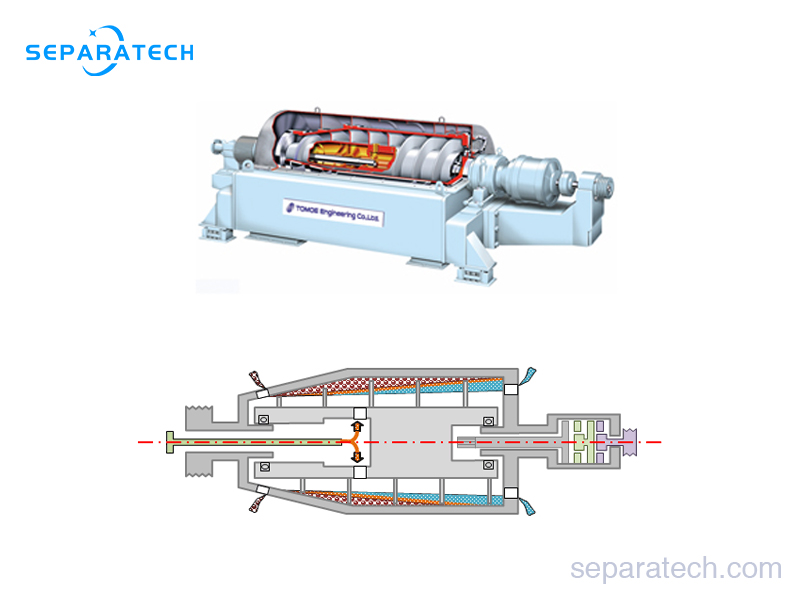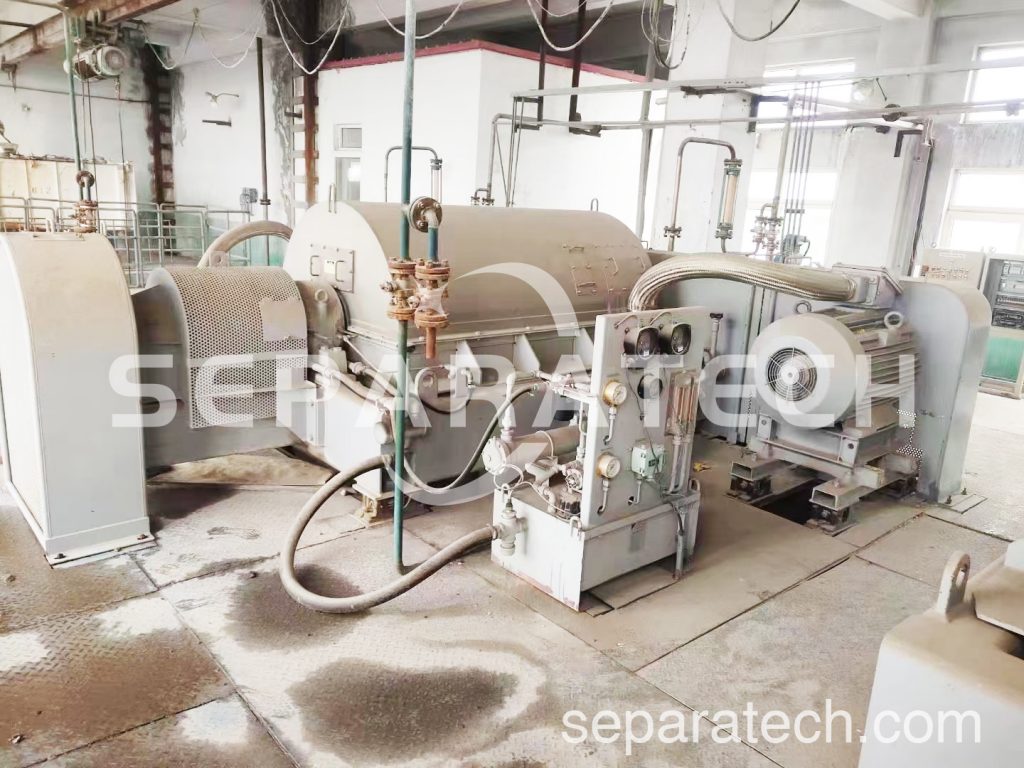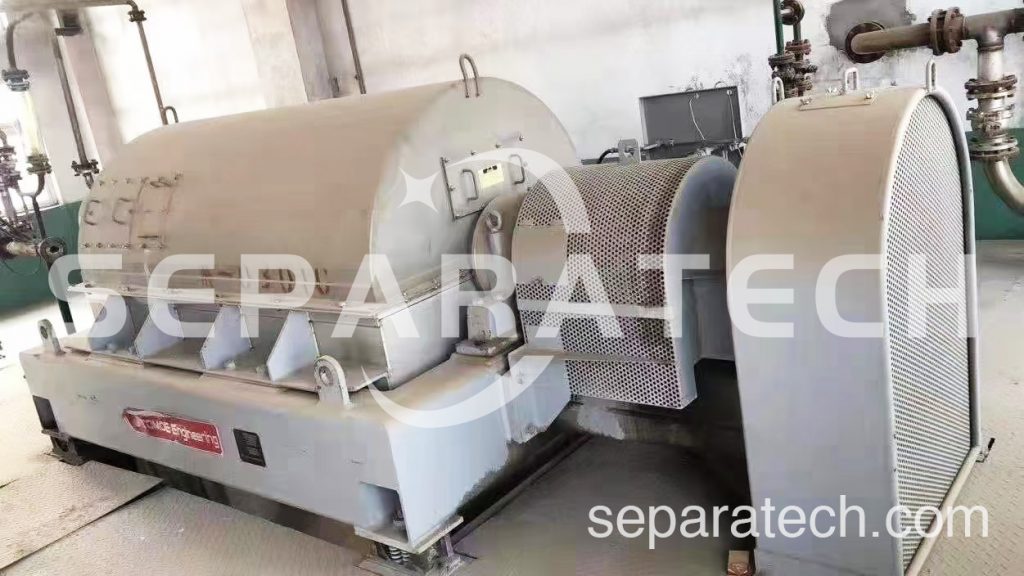Used TOMOE decanter centrifuge for PVC process

Decanter centrifuge for PVC process
Model: P-V51230U
Manufacturer: TOMOE Engineering Co.,Ltd.
Manufacturing year: 2013
Bowl speed: 2900 rpm
Max. operating temperature: 100°C
Decanter centrifuge for PVC dewatering
Polyvinyl chloride is produced by polymerization of the vinyl chloride monomer (VCM).
The manufacture of PVC largely uses the suspension process. Decanter centrifuges are required to dewater the PVC suspension after polymerization. PVC dewatered using 2-phase decanter centrifuges has a lower residual moisture level, which reduces the cost of the subsequent thermal drying process.
The working principle of the decanter centrifuge: PVC slurry is fed into the material distributor on the spiral body through the feed pipe, and is evenly distributed to the drum through the high-speed rotating spiral body. Under the action of the centrifugal force generated by the high-speed rotation of the host, the denser PVC The solid particles are quickly deposited on the inner wall of the drum, and the spiral blades moving relative to the drum continuously scrape them down and push them to the slag discharge port at the small end of the drum. The separated clear liquid passes through the opening of the weir plate at the big end of the drum. Overflow out of the drum. The relative movement between the screw and the drum is realized by the differential. The housing of the differential is connected with the drum, the output shaft of the differential is connected with the screw, and the input shaft of the differential is connected with the torque limit protection device. The main motor drives the rotation of the drum while also driving the rotation of the differential housing. The differential input shaft is connected to the torque limit protection device. Under the action of the differential speed ratio, the torque is transmitted to the spiral body, thereby realizing the centrifuge Continuous separation of PVC materials.


